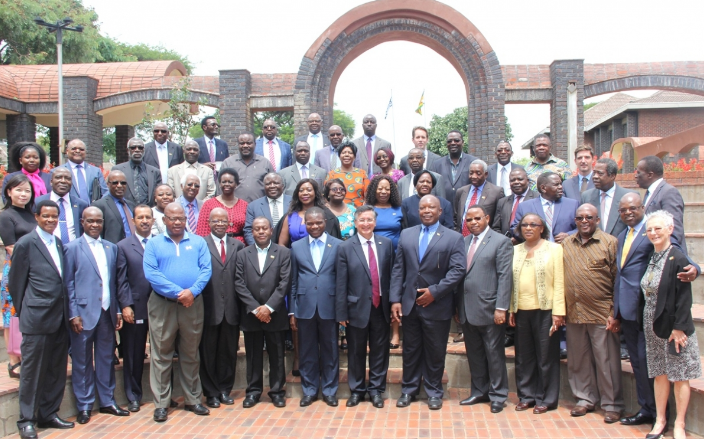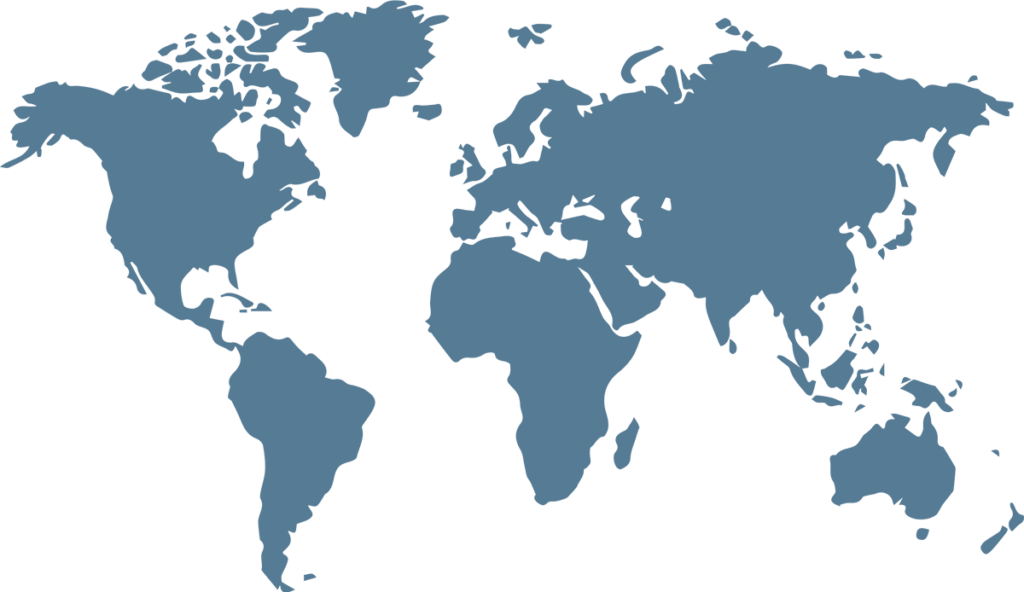The United Nations Resident Coordinator, Mr. Bishow Parajuli, and members of the United Nations Country Team (UNCT) briefed Zimbabwe’s global Ambassadors at their Diplomatic Mission Foreign Policy Review Workshop to forge partnerships in achieving the Sustainable Development Goals (SDGs) by 2030.
Speaking at the workshop held at the Zimbabwe Institute of Public Administration and Management, in Darwendale, the UN Resident Coordinator stressed the importance of these initiatives in creating an enabling environment, putting Zimbabwe on the right track to achieving the 2030 Agenda for Sustainable Development in the country.
Mr. Parajuli stated, “the 2030 Agenda for Sustainable Development is our boldest agenda for humanity, and requires equally bold changes in the UN development system. We must strengthen collaboration to achieve it through regular joint consultations between the Ministry of Foreign Affairs and the UNCT as well as bilateral consultations between UN Heads of Agencies and Zimbabwean Permanent Representatives to UN Agency Headquarters.”
The Zimbabwean Diplomatic core have returned home to discuss foreign policy issues including Zimbabwe’s re-engagement with the international community, the International Financial Institutions, Zimbabwean trade, investment and tourism promotion as well as rebranding Zimbabwe globally.
The UN Resident Coordinator said: “The UN Secretary General, Mr. Antonio Guterres proposed UN reform along seven building blocks: maximizing UN development system assistance to countries, new generation of UN Country Teams, reinvigorated UN Resident Coordinator System, reconfigured regional approach, more accountable leadership and better governance, a system wide approach to partnerships, and a new funding pact to reposition the UN development system to make it fit-for-purpose to support countries in their quest to achieve the 2030 Agenda.” The UN Resident Coordinator underlined the development landscape is changing – business as usual is no longer an option.
Meanwhile, the UN Country Team members who co-chair the six results group of the 2016-2020 Zimbabwe United Nations Development Assistance Framework (ZUNDAF) briefed the Ambassadors on the six result areas: food and nutrition security, HIV/AIDS, gender equality, poverty reduction and value addition, public administration and good governance and social services and protection and discussed how the Ambassadors can further push the transformative agenda.
Aligned to the SDGs and national development priorities, the ZUNDAF provides programme, advisory, technical and financial support to Zimbabwe to the tune of over USD 400 million annually, representing over 60% of Overseas Development Assistance (ODA) inflow to the country. This is considered a significant contribution as it was noted by the UN Resident Coordinator that ODA, although reaching its peak globally, is currently in decline in Zimbabwe.
The UN Resident Coordinator commended Zimbabwe on the ratification of the six core international human rights treaties: Convention on the Elimination of all Forms of Racial Discrimination (CERD), International Covenant on Civil and Political Rights (CCPR), International Covenant on Economic, Social and Cultural Rights (CESCR), Convention on the Elimination of all forms of Discrimination Against Women (CEDAW), Convention on the Rights of the Child (CRC), and Convention on the Rights of Persons with Disabilities (CRPD) and the Optional Protocol.
However, it was noted that Zimbabwe has not yet ratified three core international human rights treaties namely the Convention against Torture, and other Cruel, Inhuman or Degrading Treatment or Punishment (CAT), International Convention on the Rights of All Migrant Workers and Their Families (CMW) and the International Convention for the Protection of all Persons from Enforced Disappearance (CED).
The UN Resident Coordinator implored the Government of Zimbabwe to critically examine the three-core international human rights treaties yet to be ratified, with a view to ratifying them as tools to enhance Zimbabwe’s efforts in human rights promotion and protection and overall sustainable development. The UN System in Zimbabwe is jointly supporting the Government to implement the 151 recommendations that it accepted during the UPR second cycle in November 2016.
Further noting the ten priority SDGs identified by the Government of Zimbabwe in 2015 does not include SDG 16 on Peace, Justice and Strong Institutions, Mr. Parajuli said that many of the commitments expressed by the new Government of Zimbabwe on peace and reconciliation, rule of law and constitutionalism are in line with the SDG 16 and the goal should be considered as national priority.
The Ambassadors thanked the United Nations for the financial and technical support to organize the workshop. Appreciating the work of the United Nations in Zimbabwe and the proactive leadership of the UN Resident Coordinator, Mr Bishow Parajuli, the Ambassadors called for the United Nations’ continued role to enhance partnership including convening and bringing onboard other development partners to engage in a symbiotic development and economic collaboration.
The Ambassadors unanimously expressed their appreciation to the ongoing UN Secretary General’s reform agenda and requested for clarification on the “reinvigorated UN Resident Coordinator System” pillar of the proposed reform. The UN Country Team members stated it was high time the leadership of the UN Resident Coordinator is formalized as the designated official of the Secretary General to enhance accountability of the UN development system at country level.
The Ambassadors urged the need for joint Government and UN collaboration to expand engagement with Zimbabwe’s diaspora community in the rebuilding efforts of the country and for the diaspora community to receive adequate protection, particularly to those that are under-stress from abuse, exploitation and human trafficking, especially women. Arms of the UN agencies that are active in the protection of migrant workers were called to increase their support to Government and its foreign missions in raising awareness on human trafficking globally.

